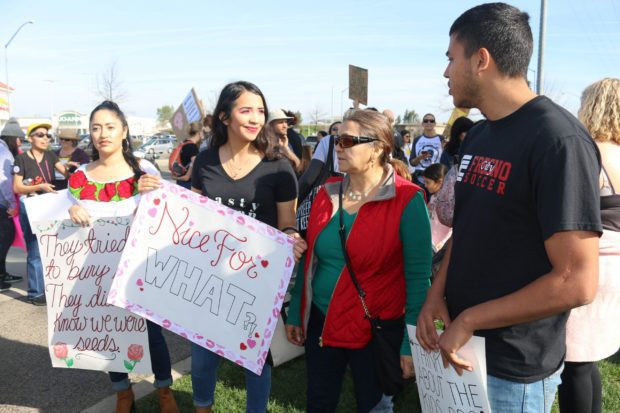
By Carli White-Morgan
I’ve been thinking a lot lately about politeness, as people decry the lack of it in public. Have you ever known someone who was always polite? Then one day they just snap and every bad thing they ever thought about you just comes out. They are angry at you because, in addition to their grievances, there is that big grievance that you didn’t see through their politeness and just know that they were upset.
It took some time for me to unlearn perpetual politeness and learn that I was responsible to tell people what I needed, and how their behavior affected me. There are times when being well is more important than being polite. Times when the relationship will only be served by the discomfort of asserting yourself past what seems civil. This doesn’t mean that we are always fully responsible. In some abusive relationships, there is no possibility of being anything other than polite, but let’s set that aside for now.
I don’t think being polite is a problem. I think that etiquette gives us an idea of what to expect. It’s like traffic rules for social interaction. Any structure can be used to exclude and control people, so thinking of them as an inviolable set of guidelines with which to punish people is damaging. Just as traffic laws that are designed to keep people safe can be used unfairly against some populations, or to get a police officer’s foot in the door and end run around the Fourth Amendment.
But generally knowing who has the right of way in an intersection does more good than harm. And so here we are, with politeness having the potential to be used for good, as in setting boundaries for people, or for ill, as in unfairly enforcing social control.
“Boundaries” can seem like a buzzword, but it’s a useful way to conceive of all kinds of relationships. Politeness is related to boundaries. What is acceptable behavior and toward whom, and when are all boundaries. That hypothetical friend I spoke of earlier, whose politeness finally broke, was responding to boundary violations. Boundaries must be asserted if anyone is to know they are being crossed, and to maintain politeness we must assert and respect boundaries.
And here comes the problem with all of the lamenting I have heard recently about politeness. Those boundaries that are violated by impoliteness, we must think about who set them and why.
In a relationship of equals, my hypothetical friend can ask me not to call her in the middle of the night asking for rides. She shouldn’t assume that I will know that is a boundary she doesn’t want me crossing. And if she spends years tallying up the times I have called, and the mileage, and harboring a grudge about it, but never says anything to me until she explodes, then how can I take responsibility for having violated that boundary?
I never even knew it was a problem. But, here, we are equals. And her polite behavior was a choice that she made. She was responsible for setting her own boundary and asserting it, and she failed.
When I hear calls for politeness in civil discourse I imagine that whoever is asking for this is assuming that we are all equals in these relationships and therefore have the privilege of negotiating what the boundaries of civil discourse will be. Some people do in our society. But maybe not as many as you think.
The use of the term civil discourse to mean something like polite conversations is not what I mean here, but literally discourse about the ways in which we are governed. Boundary setting is about power and you must have power to set and assert boundaries. In an abusive relationship, there is physical, psychological or some other kind of power imbalance that prevents the abused party from deciding how they are to be treated. It is not politeness that keeps them behaving in a deferential way. It is survival.
On a political scale, this means that oppressed groups are not “civil” because they choose to be, they are deferential because they must be. They were not a party to the negotiation of boundaries and have been prevented from asserting them by social structures and by violence.
When we speak against the oppressors as a member of an oppressed group we are by definition speaking out of turn. There is no politeness in this act and can never be. We were not a party to the setting of boundaries. We did not have that power. We are the abused party, not the friend with equal standing.
“Civility” used to seem so important to me. Dr. Martin Luther King, Jr., changed my mind. I read the “Letter from Birmingham Jail,” and it was like being struck by lightning. I was the White moderate asking people with my actions to stay oppressed until we could find a nice way to liberate them. But there is no nice way to liberate someone.
And by asking oppressed people to be civil by the standards that they weren’t a party to in negotiating I was simply asking them to stay oppressed until it was convenient for me. Until it could be done in a way I could stomach. Turns out I just needed to get a stronger stomach.
Standards of politeness protect people of privilege from having to know that they are privileged. It’s one of the privileges of privilege to not have to know you are privileged. The bottom line is that the politeness that you seek in civil discourse might just be a function of your privilege. Some people’s very lives are on the line, and there is no time to be polite about it.
*****
Carli White-Morgan is a longtime Fresno resident and member of local Veterans for Peace Chapter 180. She is currently pursuing a philosophy degree at UC Riverside.
